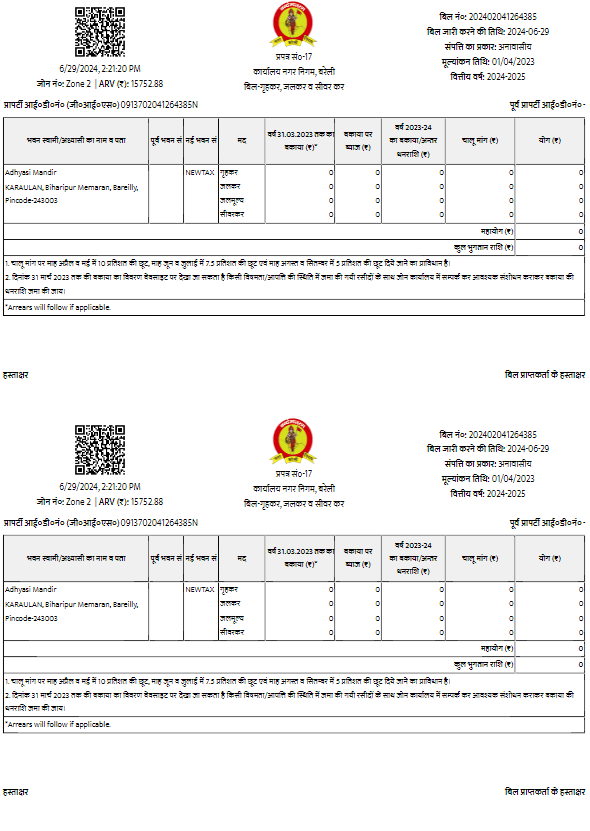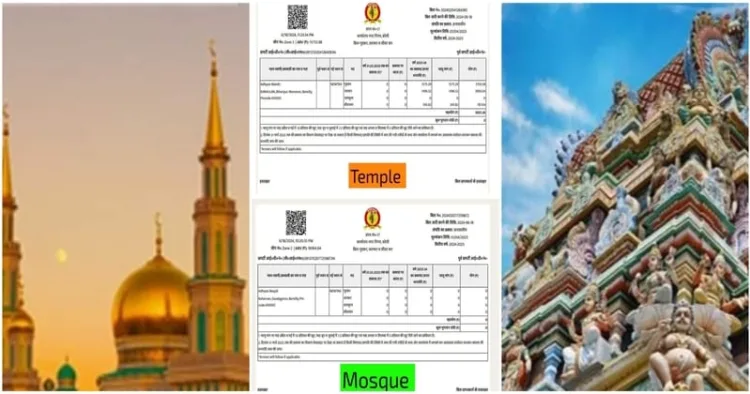There was widespread discontent after Bareilly Nagar Nigam Hindu temple was taxed Rs 6931 while the mosques enjoyed full exemptions, thereby sparking controversy. However, owing to the outrage In Bareilly, the bill was reviewed and it was found that due to an error by the Municipal Corporation, the name of a temple was mistakenly recorded on the property tax bill of a neighboring house. According to regulations, religious places are exempt from tax. The Municipal Corporation has now issued a revised bill, ensuring that no tax is levied on the temple.

Earlier Bareilly Nagar Nigam was in dock as serious questions were raised about the fairness of taxation policies concerning religious institutions. The stark contrast in municipal corporation tax rates between mosques and Hindu Mandirs had fueled accusations of discrimination and economic disparity, highlighting broader concerns about religious equity.
Tax receipt of a mosque: ZERO
Tax receipt of a Mandir: 6931Think Democracy, Think Official Discrimination Of Hindus! pic.twitter.com/0BqngXmQNR
— Treeni (@TheTreeni) June 27, 2024
It had come to light earlier that mosques in Bareilly are exempt from paying municipal corporation taxes altogether, while Hindu Mandirs face a significantly different reality. Reports indicated that temples are subjected to a hefty tax burden, with figures reaching as high as Rs 6931. This glaring discrepancy had stirred controversy and reignited debates on religious freedom and equality.
Critics argued that such discriminatory practices amount to economic oppression and religious discrimination against Hindus. They point out that while mosques enjoy tax exemptions, Mandirs are burdened with substantial financial obligations.
Moreover, the issue extends beyond economic disparities to societal implications, potentially exacerbating communal tensions and feelings of injustice among Hindus.
Addressing the stark differences in municipal corporation tax rates on religious institutions is crucial for upholding the constitutional values of equality and fairness. Authorities however, reviewed and rectified such disparities to ensure that all religious communities, regardless of faith, are treated with dignity and equality under the law.



















Comments